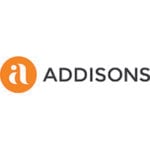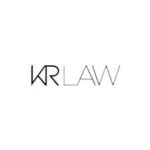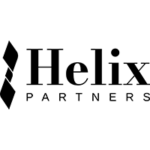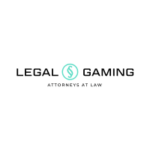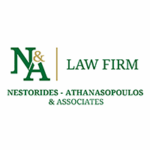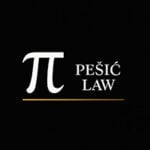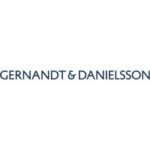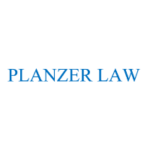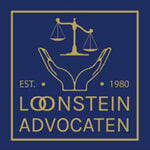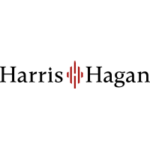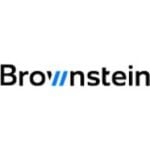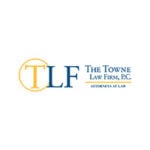-
What is the legal definition of gambling?
Section 3 (1) Sentences 1 and 2 of the Interstate Treaty on Gambling 2021 (Glücksspielstaatsvertrag, GlüStV, “ITG”): “A game is a game of chance if, in the context of such a game, a fee is charged in exchange for acquiring a chance of winning a prize, and if the decision on winning or losing depends entirely or predominantly on chance. The decision on winning or losing is always considered to be dependent on chance if the decisive factor is the uncertain occurrence or outcome of future events.”
-
What legislation applies to gambling? Please provide a summary of the legal/regulatory framework.
The Interstate Treaty on Gambling 2021 (Glücksspielstaatsvertrag, GlüStV, “ITG”) is the main legal framework. It is a Treaty between the 16 German Federal States, as gambling regulation lies predominantly within the competency of the States, that came into force on 1st July 2021.,
Regulation on terrestrial slot machines is laid down in the German Trade, Commerce and Industry Regulation Act (Gewerbeordnung) and the Federal Gaming Ordinance (Spielverordnung).
Further relevant legislation is the Race Betting and Lottery Act; It predominantly deals with taxation of gambling services; the German AML Act; Gambling Acts of the Federal states (in particular on land based gambling)
-
Which body/ies regulate gambling?
On January 1 2023, the Joint Gambling Authority of the Federal States (Gemeinsame Glücksspielbehörde der Länder, GGL) took over competency for issuing nationwide licenses and supervision of licensees in the following verticals:
- online sports betting
- horse race betting
- virtual slots
- online-poker
The GGL had already been responsible for enforcement against unauthorised gambling and the advertising thereof since July 2022. An exemption applies for advertising for illicit gambling in broadcasting: Here, the “Landesmedienanstalten” (State Media Authorities) of the individual Federal States remain competent.
In 2024, Ministry of Interior of the Federal State Schleswig-Holstein issued a limited number of license for private operators to offer online casino table games. The Ministry of Interior is also the regulating body for online casinos in Schleswig-Holstein.
-
Are licences available? If so: a) What is the duration of a licence? b) What types of licences are available? c) Are there different types of licences for B2C and B2B operators? d) Do software suppliers need to be licensed?
The new ITG marks a turning point in German gambling legislations and opens the private market to new verticals such as online casino, virtual slot machines and online poker. These add to the existing licensing possibility for sports betting, horse race betting and low risk lotteries. Each vertical requires its own licence.
Land-based casinos, gaming machines and betting shops are regulated on a state-by-state level and local licences are available.
a. Licenses for online-sportsbook, virtual slot machines and online poker: in general 5 years for initial license, 7 years after that, but the competent authority can set shorter terms in individual cases.
b. Online sportsbook, horse race betting, virtual slot machines, online poker on a federal level;
c. The regulation of online casino games with a bankholder (e.g. Blackjack, Roulette) falls under the responsibility of the individual federal states. The individual federal states can decide for themselves whether they offer online casino games in a (state-) monopoly or issue licences to private operators. If the latter is the case, the number of available licences is limited to the number of licences for land-based casinos. So far, only Schleswig-Holstein has opened an tender procedure for private operators and issued 4 licenses. This is planned in North-Rhine-Westfalia, but not licensing procedure has been initiated yet.
Lotteries are subject to a state-monopoly. Private operators can obtain a brokerage licence to distribute the products of the state lotteries. In addition, private operators can also apply for licenses for so-called low risk lotteries/social lotteries.
d. German Gambling law does not know licensing for B2B operators, only licenses for B2C operators are available. However, in addition to the operator-license the B2C also needs approval for the games they offer. This approval has to be applied for by the B2C-operator.
- Consequently, virtual slots operators must apply for a separate licence for each virtual slot game they offer, sec. 22a (1) ITG.
- Operators of online poker require a separate licence for each variant of the game of poker they offer, sec. 22b (1) ITG.
- Online sports betting operators may only offer sports betting that has been permitted by the authority in terms of type and design, sec. 21 (1), (5) ITG . A simplified procedure is available for this purpose. The GGL publishes a list of permitted betting markets on its website. Operators who wish to offer these bets must notify the GGL of their intention, and if the authority does not object within two weeks, the approval is deemed to have been granted.
e. Software suppliers are not required to be licensed under the German Interstate Treaty on Gambling.
-
Are any types of gambling products prohibited?
German Gambling law is characterized by “prohibition with reservation of permission”. According to section 4 (4) ITG: “A licence for public games of chance on the internet may only be granted for the self-distribution and brokering of lotteries, for the organisation, brokering and self-distribution of sports bets and horserace bets as well as for the organisation and self-distribution of online casino games, virtual slot machine games and online poker. Otherwise, the organisation and brokering of public games of chance on the internet is prohibited.”
This means in particular: Any games of chance outside the above catalogue are not eligible for licensing.
-
What is the headline application procedure? Please include any eligibility and other application requirements, including approximate application costs and any need to establish a local presence.
Common application procedures consist of two hurdles:
Applicants must submit all necessary documentation. This includes concepts on player protection, money laundering and other fields. Applicants must also submit recent official documents and proof of economic capacity.
In addition, applicants must pass a reliability check. A prognosis decision is made as to whether the provider offers a guarantee that the gambling business will be conducted properly in the future.
The applicant must be seated in the EU/EEA, local presence in Germany is not required.
According to section 9a (4) ITG the cost of the procedure depend on the expected gambling and betting stakes:
- up to EUR 40 Million, 0,2%, minimum EUR 100,
- between EUR 40 Million and EUR 65 Million a minimum fee of EUR 80 000 and 0,16% of the amount exceeding EUR 40 Million,
- between EUR 65 Million and EUR 130 Million a minimum fee of EUR 120 000 and 0,1% of the amount exceeding EUR 65 Million
- more than EUR 130 a minimum fee of EUR 185 000 and 0,06% of the amount exceeding EUR 130 Million
In addition, the granting of a licence requires a security deposit of at least EUR 5 Million.
-
Do individuals within the business need to be personally licensed or authorised? If so, please provide headline requirements.
Key personnel must provide police and tax clearance certificates as well as a proof of qualification in their field (either by way of professional experience or degrees). Germany does not know Key Function Certificates (as for example Malta).
-
Is advertising of gambling permitted and, if permitted, how is it regulated?
Advertising for gambling is regulated in section 5 ITG as well as in the individual license ancillary provisions. Currently, German gambling law has no public advertising guideline. As a general rule, advertising is only allowed for licensed gambling services; Advertising for illicit gambling can constitute a criminal offence. Advertising must not be excessive and must not address minors or comparably vulnerable target groups. Games of chance must not be presented as a solution to financial problems. Please find the main regulations below:
- Licensees may advertise and undertake sponsoring for the permitted games of chance.
- The licence will specify ancillary provisions for the arrangement of the advertising for public games of chance, in particular for advertising on television and in the internet.
- The nature and scope of advertising for public games of chance must not be contrary to the objectives set out in section 1 of the German Interstate Treaty on Gambling (in particular player protection, addiction prevention).
- Between 6 a.m. and 9 pm advertising for virtual slot machine games, online poker and online casino games via television, radio or the internet is prohibited.
- Advertising for sports betting by active athletes and sports officials is prohibited.
- In sports facilities, advertising for games of chance in the form of umbrella brand advertising on jerseys and perimeters and similar advertising media is permitted.
- Advertising addressed to individuals for games of chance is only permitted if the prior consent of the intended recipient has been obtained for the receipt of advertising and for a cross-check by the advertiser with the blocked player file. Advertising for these games of chance personally addressed to blocked players is not permitted.
- Advertising for and sponsoring of illegal games of chance is prohibited and can constitute a criminal offence in Germany.
- ban on influencer marketing and collaborating with streamers (part of the ancillary provisions of the license)
- rigid restrictions on affiliate marketing, variable turnover, stake or loss-based remuneration of affiliates is prohibited
It is important to know that central restriction of advertising such as the influencer ban are under review by the courts. A second instance court has repeatedly ruled that a total ban on influencer marketing is unlawful. One can expect that the authorities will consider this case law and amend the license provisions affected.
-
Are marketing affiliates permitted? If so, are they licensed or regulated?
Yes, affiliate marketing is regulated in section 5 (6) ITG as well as the ancillary license provisions. Affiliates are direct addressees of German gambling regulations only in the context of the prohibition of advertising for illicit gambling. Otherwise, the gambling operators are addressees of the specifics on affiliate marketing.
The main regulations on affiliates are:
- Affiliates may not be granted variable remuneration for affiliate links based on turnover, deposits, or stakes of a player at the gambling operator.
- Further restrictions are laid down in the ancillary provisions of gambling licenses, however, these are subject to legal challenges:
Gambling operators must ensure their affiliate -partners do only link to whitelisted operators.
All advertising material on affiliate websites must be clearly marked as such
Upon opening of the website, the gambling operator must notify that the affiliates receives a remuneration in case the player registers.
-
What are the penalties for offering, facilitating or marketing unlawful gambling, and can the gambler be penalised for participating in unlawful gambling?
Offering, facilitating or marketing unlawful gambling is a criminal offence in Germany. It punishable with a penalty fee or up to 5 years imprisonment for the responsible natural persons. In recent years, several criminal investigations were initiated against operators of online gambling operators, however, such investigations were often discontinued as the norm on illicit gambling in the German Criminal Code is not applicable if the operator acts from outside Germany.
Gamblers can also penalised. (Intentional) participating in illicit gambling is also a criminal offence is punishable with a penalty fee or up to 6 months imprisonment.
Operators of or advertisers for illegal gambling also face administrative fines of up to 500,000 EUR per breach, see section 28a GlüStV.
-
Briefly detail key requirements for licensees.
Germany has a two-part licensing process for slots and poker. Providers must apply for an organizer’s license and, in addition, approval of the individual games they offer. The latter contains a definite list of allowed games/poker variants. Sportsbetting licensees have to apply for their intended betting markets.
Sportsbetting-, virtual slots-, online poker- and online casino operators are also required to connect to the LUGAS-Database. LUGAS consist of the so-called limit-file, activity-file and the safe server.
- The limit-file monitors the monthly deposit limit, as players are required to set a maximum monthly deposit limit of max EUR 1000 which applies across all licensees. The licence may provide that a limit exceeding EUR 1000 (up to EUR 30000) may be set by certain players.
- The activity file is intended to prevent parallel play with several operators and to ensure the waiting time of 5 minutes when the player switches from one operator to another.
The increased deposit limit, may only be set at the request of the player. The prerequisite for a limit of more than EUR 1000 is a successfully passed affordability check of the player (must be repeated annually). In addition, players with higher deposit limits are subject to enhanced player monitoring with regard to gambling addiction and stricter RG measures are to be taken.
As a general rule, key requirements for licensee is acting in compliance with the concepts and policies submitted to the licensing authority during the application procedure. Notwithstanding the adherence to material law, licensees are also required to fulfil several reporting duties. The licenses also specify advertising restrictions.
-
Briefly detail key anti-money laundering requirements.
Anti money laundering requirements are predominantly stipulated in the federal Anti-Money Laundering Act (Gesetz über das Aufspüren von Gewinnen aus schweren Straftaten, Geldwäschegesetz – GwG, “AML Act”). In addition, the supreme supervisory authorities of the Laender have issued so-called interpretation and application guidelines on the Anti-Money Laundering Act for the gambling sector.
Pursuant to sec. 2 (1) No. 15 AML Act , organisers and brokers of games of chance (with minor exceptions) are obligated entities within the meaning of the AML Act. As such, gambling operators are obliged to have an effective risk management pursuant to sec. 4 AML Act. Risk management essentially consists of risk analysis (sec. 5 AML Act) and the resulting internal safeguards (sec. 6 AML Act). The factors to be considered in the risk analysis are listed in the Annex to the AML Act. A responsible member of the highest management level of the company must be appointed for the effective implementation of risk management.
The individual AML requirements to be met are varied and complex, but include – inter alia – the following:
- a thorough KYC process, including PEP and sanction checks
- Clarification of the beneficial owner
- In online gambling, the player may only be admitted to play after the player account has been created in the name of the player (one player account per player).
- Additionally, deposits and withdrawals are only allowed from and to a payment account within the meaning of the German Payment Services Supervision Act (ZAG), which is held in the name of the player.
- Anonymous payment methods are prohibited
- Appointment of MLRO and DMLRO
- Regular training of employees
- operators are obliged to report suspicious activities or transactions to the German Financial Intelligence Unit (FIU).
-
Briefly detail key responsible gambling (or safer gambling) requirements.
Participants of games of chance must be 18 years or older, which has to be technically ensured by the relevant identification/verification procedures.
As a key requirement regarding responsible gambling and player protection, operators must implement and run an automated system for the detection of addictive behaviour. The system must be based on scientific findings from the field of gambling addiction research.
Operators must connect to the German central player blocking file OASIS. The system allows for self exclusions and third party applications for player exclusions. Players that are registered in this cross-provider database must not be allowed to participate in gambling or receive any marketing material. Furthermore online-operators are obliged to implement a so-called “panic-button” on their website which triggers an immediate 24h exclusion.
Under the acronym for Cross-border gambling supervisory system, LUGAS combines a central playing activity file and a central deposit limit file. The files are intended to monitor and control playing behaviour, prevent parallel playing and limit the monthly deposits to EUR 1000 in general.
Additionally, operators must include a so called “panic-button” during gameplay. If the player presses this button, they are immediately excluded from gameplay for 24 hours.
-
Briefly detail shareholder reporting and approval threshold(s).
The Interstate Treaty knows shareholder reporting and approval duties during the licensing process and after the granting of a license. For legal entities, any change exceeding a 5% threshold in relation to the voting or shareholding rights, need to be reported and pre-approved by the gambling authority. This includes planned changes in advanced stages.
-
Briefly detail the regulator’s enforcement powers, including sanctions.
In order to combat illicit gambling, the ITG knows 3 different instruments.
- Issuing of country wide prohibition orders against operators and advertisers. Such prohibition orders can be enforced by penalty fees or detention of responsible directors.
- Payment blocking: The supervisory authority can act against Payment Service Providers collaborating with illicit gambling operators and therefore stopping cashflow for unlicensed operators.
- ISP Blocking: As an administrative ultima ratio, the supervisory authority can take measures against Internet Access Provider and other Service Providers within the meaning of sections 8-10 German Telemedia Act. This requires, that prior enforcement attempts against operators themselves were unsuccessful.
ISP blocking currently is not available to the regulator. In a judgment from April 2024, the higher administrative court Rhineland-Palatinate has decided that the current wording in the Interstate Treaty on gambling cannot serve as valid legal basis for enforcement actions against e.g. access providers.
This has been confirmed by the Federal Administrative Court by judgement dated 19th March 2025.
The gambling authorities have acknowledge that in order to carry out the intended enforcement, a change in law is required. An adjustment to the regulation outside of the regular evaluation will be examined, particularly with regard to the question of responsibility, and is expected to be implemented in the near future.
The Interstate Treaty furthermore knows an extensive catalogue of administrative offences, punishable with penalty fees of up to EUR 500,000 per breach
-
What is the tax rate?
The tax rate is 5,3% of the net stake (minus the actual tax) for horse race betting, sportsbetting, virtual slot machines and online poker.
-
Are there any proposals for changing gambling laws and regulations in the next 12-24 months? If so, please provide an overview of the proposed changes and likely timing.
According to § 32 ITG, the effects of the Interstate Treaty on the development and spread of unauthorized gambling in black markets, will be evaluated by the gambling supervisory authorities of the federal states with the involvement of the Joint Gambling Authority of the Federal states and the Advisory Board. An interim report has now been published, see https://www.innenministerkonferenz.de/IMK/DE/termine/to-beschluesse/2024-06-21-19/Anlage_TOP_83_GlueStv.pdf?__blob=publicationFile&v=3 . This report includes key findings and need for action in the following areas:
- Approval of slot games: The Joint gambling authority has identified the current application procedure for individual slot games via the B2C operators as problematic and ineffective. They propose changes in the procedure and contemplate the creation of a B2B licensing regime for game studios.
- ISP blocking: Due to recent case law (see question 15), it is apparent that the authorities can currently not rely on ISP blocking of illicit offers. The authorities request a swift change of law in order to create the legal basis required for ISP blocking.
- The Interim report also mentions current uncertainties regarding the airing of advertising spots during the daytime. In the report, the authorities mention that certain practices might circumvent the prohibition of daytime advertising in broadcasting and internet (for slot machine games, poker and casino games) by using sponsoring messages with advertising elements. This is controversially discussed between the federal states, as are individual calls for a general advertising ban. The latter, however, is currently not considered as most of the states recognize the channeling objective that advertising for legal offers serves.
One of the most debated regulatory changes concerns the ability of operators to allow players to exceed the principle monthly deposit limit of 1000 EUR, which applies across all operators. Since 2020, there have been various regulations for allowing such increased limits. The currently valid approvals expire at the end of 2025 – the future regulation is highly debated and unclear at this stage. The main topic of discussion the so-called “affordability check” where the operator has to ensure the player is financially capable of spending the envisaged amount for gambling.
-
What key regulatory developments are proposed or on the horizon in the next 12-24 months?
Amendment of § 22a ITG and ISP blocking regulation
Due to the findings of the interim report (see question 17) and the need for action that was identified, changes to the application procedure for virtual slot games as well as to the legal basis for ISP blocking are possible.
Potential increase of the max EUR 1 Stake for virtual slot machines
Pursuant to sec. 22a (7) ITG, the maximum stake in virtual slot machines is EUR 1 per spin. However, GGL may adjust the maximum stake per game to changing conditions. Currently, several applications for an increase of the maximum stake are pending with the authority. It is not yet clear whether the authority will agree to an increase, and if so, in which amount.
-
Do you foresee any imminent risks to the growth of the gambling market in your jurisdiction?
Activities of operators on the pre-licensed market until the end of 2020 have become centre of civil mass litigation in so called chargeback claims by players claiming their losses. Sportsbetting and casino operators alike are targeted by litigation funding companies making use of the non-transparent legal situation before the licensing regimes. The prevailing case law by higher regional courts in principle grants such claims. However, the German Federal Court of Justice has suspended both casino and sportsbook chargeback claims and itself referred questions to the European Court of Justice. This is to clarify whether such chargeback claims contravene the European freedom to provide services for operators licensed in another EU member state.
Recently, chargeback claims have also been extended to activities under a German license in individual cases. On the basis of alleged incompliances under the license (e.g. limit infringements), players claim back losses.
Additionally, several studies conclude that in particular in the online sector, regulated operators suffer from a strong black market. Estimations vary but indicate up to 80% black market share for online slots. So far, the regulator has failed to address this effectively. Both courts and the industry have concluded that due to the missing enforcement, an attractive product is the most efficient way to combat the illegal market.
-
If a gambling start-up was looking for a jurisdiction in which to commence its activities, why would it choose yours?
In addition to improving the product requirements for an attractive gambling product (increase of limits, maximum stakes, etc.), once the legal basis for ISP blocking has been created, we expect improvements in enforcement action against illicit offers. ISP blocking shows to be particularly important since the authorities have not managed to prevent offers with “alternative” payment methods such as Crypto by way of payment blocking.
Germany: Gambling Law
This country-specific Q&A provides an overview of Gambling laws and regulations applicable in Germany.
-
What is the legal definition of gambling?
-
What legislation applies to gambling? Please provide a summary of the legal/regulatory framework.
-
Which body/ies regulate gambling?
-
Are licences available? If so: a) What is the duration of a licence? b) What types of licences are available? c) Are there different types of licences for B2C and B2B operators? d) Do software suppliers need to be licensed?
-
Are any types of gambling products prohibited?
-
What is the headline application procedure? Please include any eligibility and other application requirements, including approximate application costs and any need to establish a local presence.
-
Do individuals within the business need to be personally licensed or authorised? If so, please provide headline requirements.
-
Is advertising of gambling permitted and, if permitted, how is it regulated?
-
Are marketing affiliates permitted? If so, are they licensed or regulated?
-
What are the penalties for offering, facilitating or marketing unlawful gambling, and can the gambler be penalised for participating in unlawful gambling?
-
Briefly detail key requirements for licensees.
-
Briefly detail key anti-money laundering requirements.
-
Briefly detail key responsible gambling (or safer gambling) requirements.
-
Briefly detail shareholder reporting and approval threshold(s).
-
Briefly detail the regulator’s enforcement powers, including sanctions.
-
What is the tax rate?
-
Are there any proposals for changing gambling laws and regulations in the next 12-24 months? If so, please provide an overview of the proposed changes and likely timing.
-
What key regulatory developments are proposed or on the horizon in the next 12-24 months?
-
Do you foresee any imminent risks to the growth of the gambling market in your jurisdiction?
-
If a gambling start-up was looking for a jurisdiction in which to commence its activities, why would it choose yours?
